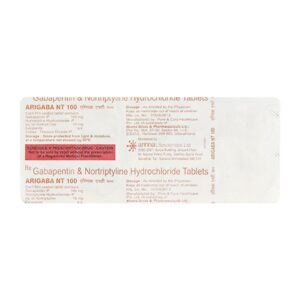MECOBALAMIN + GABAPENTIN
Mecobalamin: Mecobalamin, also known as methylcobalamin, is a form of vitamin B12. It is used as a supplement to treat vitamin B12 deficiency, certain neurological disorders, and for general nerve health support.
The primary mechanism of action of Mecobalamin is its ability to act as a cofactor for certain enzymes involved in the synthesis of DNA, as well as the maintenance and protection of nerve cells. It plays a crucial role in the formation of myelin, the protective covering of nerves, and helps in the generation and maintenance of red blood cells.
The recommended dose of Mecobalamin varies depending on the condition being treated. For vitamin B12 deficiency, the usual dose is 1000-2000 micrograms given once daily. For neurological disorders like peripheral neuropathy, the dose is typically higher, ranging from 1500-6000 micrograms per day. It is available in various forms, including oral tablets, sublingual tablets, and injectable formulations.
Most people tolerate Mecobalamin well, and side effects are generally rare. However, some individuals may experience mild side effects such as headache, nausea, diarrhea, or skin rash. Allergic reactions, though rare, can also occur, and immediate medical attention should be sought if any signs of an allergic reaction (such as difficulty breathing, swelling of the face or throat, or severe skin rash) are observed.
It is important to note that Mecobalamin should be used under medical supervision, especially in individuals with certain medical conditions such as kidney or liver disease, as well as in pregnant or breastfeeding women. Drug interactions may also occur, and it is advisable to consult a healthcare professional before starting Mecobalamin alongside other medications.
Gabapentin: Gabapentin is a medication that belongs to the class of antiepileptic drugs. It is primarily used to treat seizures and control certain types of epilepsy. Additionally, it is used as a nerve pain reliever for conditions such as postherpetic neuralgia (nerve pain occurred due to shingles) and as an adjunct treatment for neuropathic pain associated with conditions like diabetic neuropathy and fibromyalgia.
The exact mechanism of action of Gabapentin is not fully understood, but it is believed to work by affecting the activity of certain neurotransmitters in the brain, specifically the inhibition of calcium channels. This can help to decrease abnormal firing of brain cells that may cause seizures or abnormal pain signaling.
The dosage of Gabapentin varies depending on the condition being treated. For epilepsy, the initial dose for adults is usually 300mg taken orally three times daily, gradually increasing to a maintenance dose of 900-1800mg per day. For nerve pain, the initial dose is usually 300mg taken orally once daily, and the dosage may be increased depending on the response and tolerance of the individual.
Common side effects of Gabapentin may include dizziness, drowsiness, fatigue, headache, blurred vision, and coordination difficulties. Some individuals may also experience gastrointestinal upset, such as nausea, vomiting, or diarrhea. These side effects are usually mild and transient. However, more serious side effects may occur in rare cases, such as allergic reactions, mood changes, or suicidal thoughts. It is important to consult a healthcare professional if any unusual or severe side effects are experienced.
Gabapentin may also cause withdrawal symptoms if suddenly discontinued or if the dosage is reduced rapidly, so it is usually advised to gradually taper off the medication under medical supervision. It is essential to follow the prescribed dosage and instructions provided by the healthcare professional while using Gabapentin.


